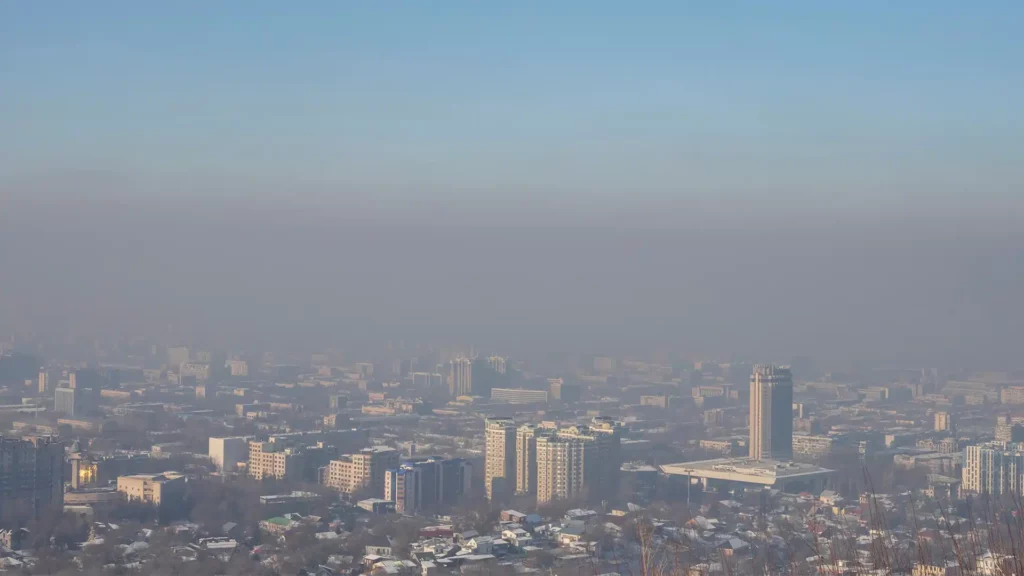Plastic waste is one of the most pressing environmental issues of our time, affecting both local ecosystems and global efforts towards sustainable development. Kazakhstan, like many countries, is facing a growing volume of plastic waste, which poses significant challenges to environmental safety.
Within the framework of the regional project “Plastic Waste in Remote and Mountainous Areas of Kazakhstan and Uzbekistan” , implemented by the Center for Assistance to Sustainable Development ( https://csd-center.org/ ) with the support of the Secretariat of the Basel, Rotterdam and Stockholm Conventions (BRS), a large-scale inventory of plastic waste was conducted for the period from 2013 to 2022. This project, which also covers Uzbekistan, is being implemented with the active participation of the Ministry of Ecology and Natural Resources of the Republic of Kazakhstan and is aimed at developing sustainable solutions in the field of waste management.
The inventory provided a detailed analysis of the volume of plastic use, its distribution by sector and the dynamics of waste generation. Between 2013 and 2022, the volume of plastic products entering the Kazakhstan market increased from 387 thousand tons to 855 thousand tons, representing an increase of 121.6%. The main consumers of plastic are the packaging, construction and transport sectors. Packaging occupies a leading position, accounting for more than 23% of the total plastic consumption, which is due to the short service life of packaging materials. In 2022, the volume of plastic used for packaging amounted to about 196 thousand tons. The construction sector ranks second with a share of 19% (167 thousand tons), where plastic is used to produce durable materials such as pipes and insulation. The transport sector consumes about 17% of plastic, which is due to the growth in car production and the use of plastic components to reduce the weight of vehicles.
Along with the increase in plastic consumption, the volume of plastic waste generation is also growing. In 2022, it reached 296 thousand tons, which is more than twice the figure for 2013. The main source of waste is packaging, which accounts for 66% of the total volume. This is due to the widespread use of disposable packaging and the lack of effective recycling systems. Other sectors, such as construction and transport, generate less waste due to the longer service life of plastic products. Among the most widely used polymers in Kazakhstan, polyethylene (38%), polypropylene (23%) and polyethylene terephthalate (14%) lead the way, also accounting for the bulk of waste.
The inventory revealed a number of problems that hinder the effective management of plastic waste. The main challenge is the insufficient infrastructure, which cannot cope with the growing volumes of waste. The lack of a separate waste collection system increases the load on sorting capacities and reduces the quality of recyclable materials. The low level of environmental culture among the population exacerbates the problem, since many citizens are not sufficiently informed about the need to sort and recycle waste. In addition, regional imbalances in recycling capacities limit the possibilities for effective waste management, especially in remote and mountainous areas.
Based on the inventory results, recommendations were developed to address the identified issues. Regular inventories will help maintain up-to-date data on the volumes and types of plastic waste and develop effective management strategies. Infrastructure development, including the creation of new facilities and the modernization of existing ones, will be an important step in reducing waste volumes. The introduction of a separate waste collection system will improve the quality of recycling and reduce sorting costs. Large-scale educational campaigns will help raise the level of environmental awareness among the population and stimulate citizen participation in recycling initiatives. Improving legislation, including limiting the use of single-use plastic and stimulating the use of recycled materials, will create conditions for the transition to a circular economy.
The inventory of plastic waste in Kazakhstan has become an important step in the development of a sustainable waste management system. The study provided relevant data that will help develop and implement effective measures to reduce the volume of plastic waste, increase recycling and minimize its negative impact on the environment. Together with the results of a similar study in Uzbekistan, the project highlights the importance of regional cooperation and an integrated approach to solving the problem of plastic pollution. The implementation of the proposed measures will allow Kazakhstan to strengthen its position in Central Asia as a leader in the field of environmentally sustainable waste management and support the transition to a circular economy.
In 2025, the results of the inventory of plastic waste will be uploaded to the official website of the Secretariat of the Basel, Rotterdam and Stockholm Conventions: https://www.brsmeas.org/
https://tumba.kz/%D0%BD%D0%BE%D0%B2%D0%BE%D1%81%D1%82%D0%B8-%D0%BA%D0%B0%D0%B7%D0%B0%D1%85%D1%81%D1%82%D0%B0%D0%BD%D0%B0/49-%D0%BD%D0%BE%D0%B2%D0%BE%D1%81%D1%82%D0%B8-%D0%BA%D0%B0%D0%B7%D0%B0%D1%85%D1%81%D1%82%D0%B0%D0%BD%D0%B0/70792-inventarizaciyaplastikovyxothodovvkazaxstane.html#:~:text=%D0%9F%D0%BB%D0%B0%D1%81%D1%82%D0%B8%D0%BA%D0%BE%D0%B2%D1%8B%D0%B5%20%D0%BE%D1%82%D1%85%D0%BE%D0%B4%D1%8B%20%D1%8F%D0%B2%D0%BB%D1%8F%D1%8E%D1%82%D1%81%D1%8F%20%D0%BE%D0%B4%D0%BD%D0%BE%D0%B9%20%D0%B8%D0%B7,%D0%B3%D0%BB%D0%BE%D0%B1%D0%B0%D0%BB%D1%8C%D0%BD%D1%8B%D0%B5%20%D1%83%D1%81%D0%B8%D0%BB%D0%B8%D1%8F%20%D0%BF%D0%BE%20%D1%83%D1%81%D1%82%D0%BE%D0%B9%D1%87%D0%B8%D0%B2%D0%BE%D0%BC%D1%83%20%D1%80%D0%B0%D0%B7%D0%B2%D0%B8%D1%82%D0%B8%D1%8E.



